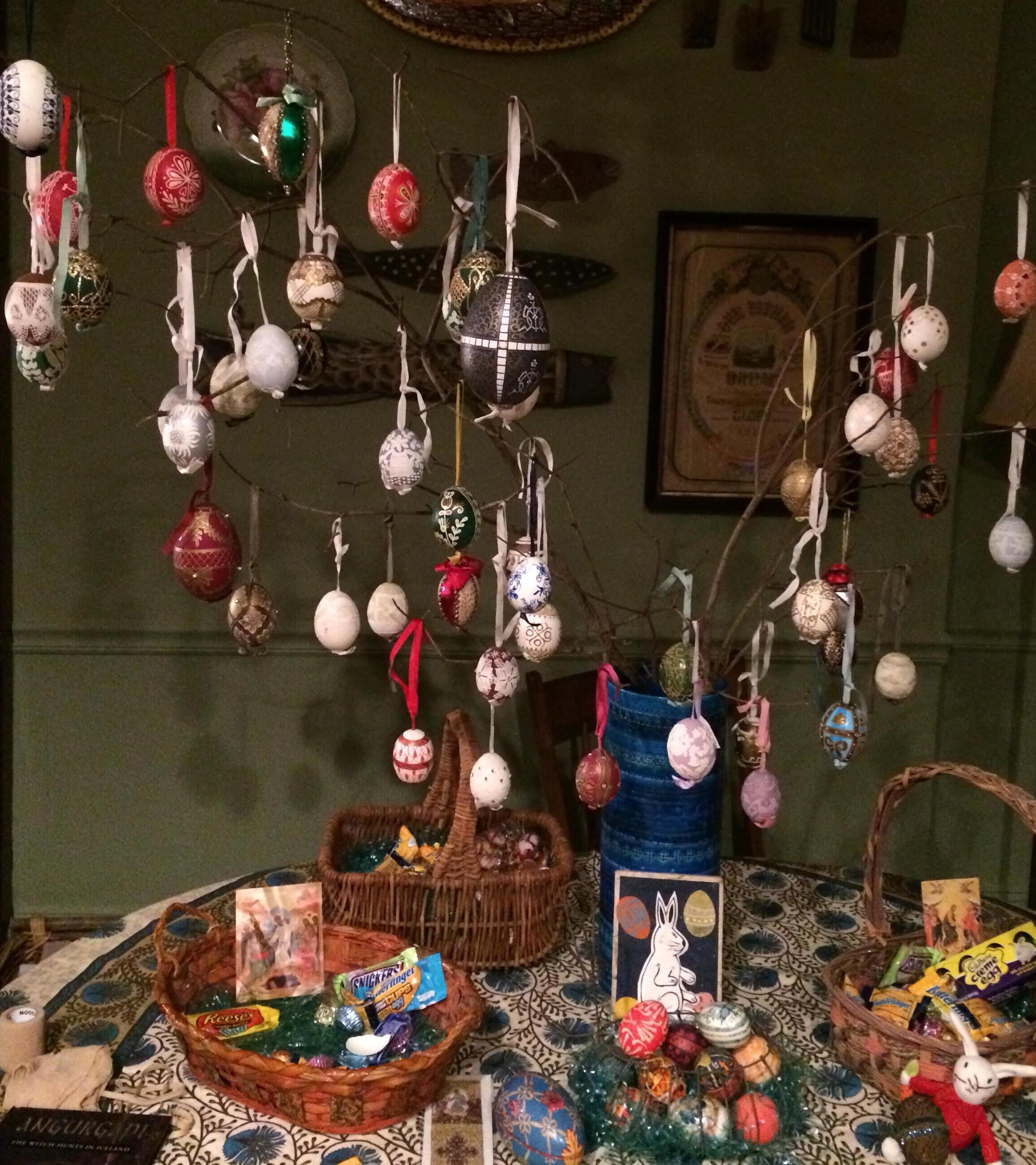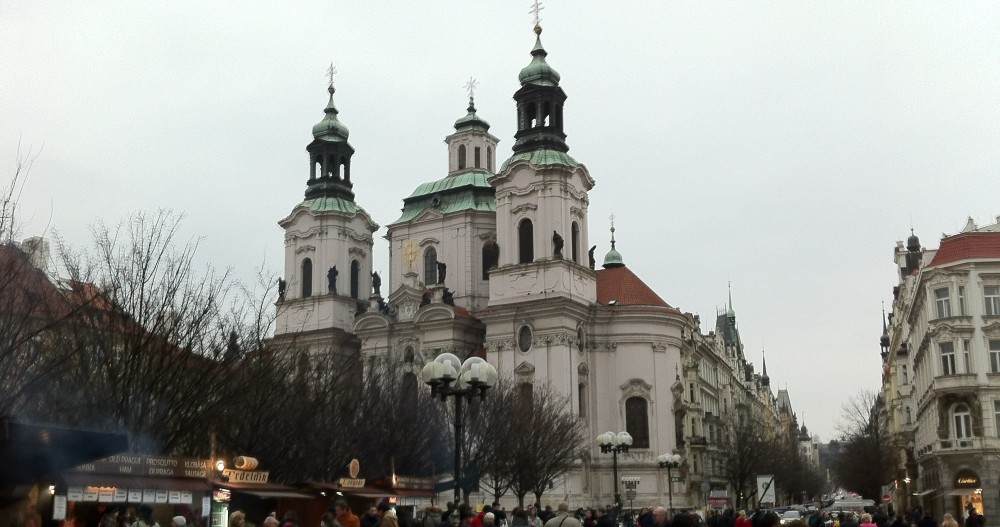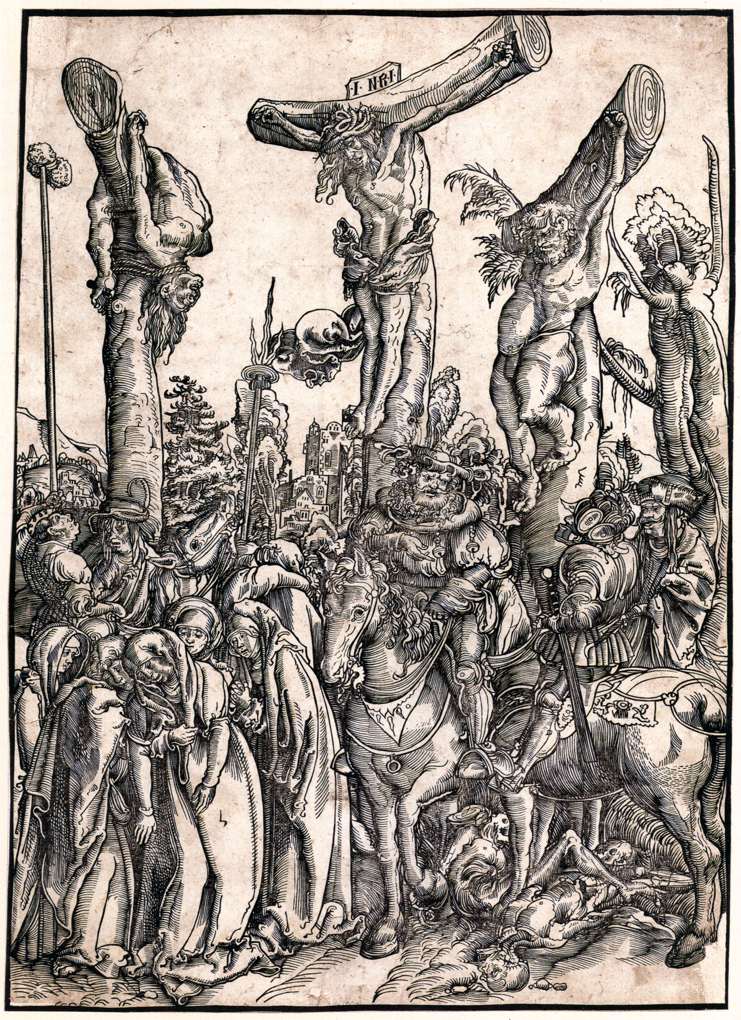
My collection of decorated eggs from Prague and Salzburg on display as an Easter egg tree in 2015.
Pysanky are the decorated eggs in Ukraine or other Slavic areas which are a very important part of the holiday season. It is important to keep making new pysanky every year to replace those that were broken by accident last year because the pysanky keep an evil dragon away from the earth. The more pysanky there are in the world, the further away the dragon must hide. But if there are too few pysanky, then the dragon can come closer and if there are really not enough pysanky in the world then the dragon can eat the earth!
Easter baskets were traditionally baskets of holiday food (meat, cheese, eggs — all the things that people were supposed to be fasting from during Lent!) that were brought to church to be blessed. Easter Monday was a good time to keep eating what was in the Easter baskets as well as enjoy the decorations and displays of Easter eggs. In many parts of Central Europe, people make “Easter trees” to hang their elaborately decorated Easter eggs on.
Pysanky were thought to protect households from evil spirits, catastrophe, lightning and fires. Pysanky with spiral motifs were the most powerful, as the demons and other unholy creatures would be trapped within the spirals forever.
Pysanky held powerful magic, and had to be disposed of properly, lest a witch get a hold of one. She could use the shell to gather dew, and use the gathered dew to dry up a cow’s milk. The witch could also use bits of the eggshell to poke people and sicken them. The eggshell had to be ground up very finely (and fed to chickens to make them good egg layers) or broken into pieces and tossed into a running stream.
The cloth used to dry pysanky was powerful, too, and could be used to cure skin diseases. And it was considered very bad luck to trample on a decorated egg -– God would punish anyone who did with a variety of illnesses.
There were superstitions regarding the colors and designs on the pysanky. One old Ukrainian myth centered on the wisdom of giving older people gifts of pysanky with darker colors and/or rich designs, for their life has already been filled. Similarly, it is appropriate to give young people pysanky with white as the predominant color because their life is still a blank page. Girls would often give pysanky to young men they fancied, and include heart motifs. It was said, though, that a girl should never give her boyfriend a pysanky that has no design on the top and bottom of the egg, as this might signify that the boyfriend would soon lose his hair.


